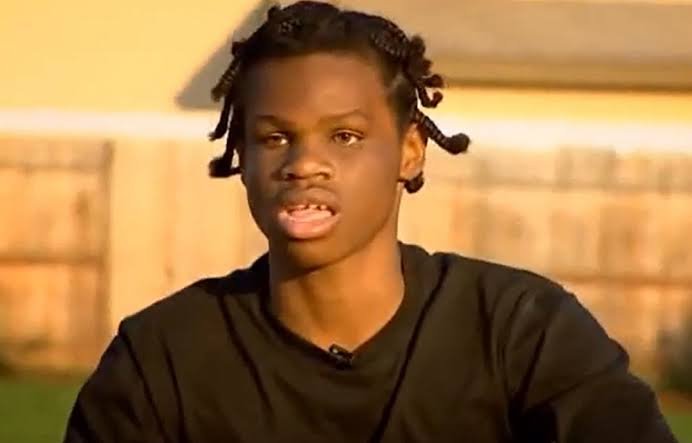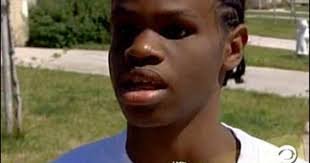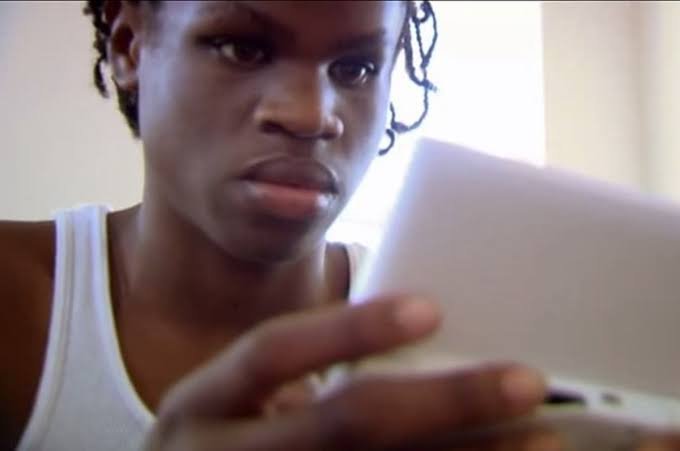You see, this is absolutely fascinating. In a world where superhero stories are usually restricted to the pages of you know, comic books and the big screen, the tale of Ben Underwood stands out as a true account of superhuman abilities like for real, for real. This guy is like the real batman without the expensive gadgets and combat skills in my book.

Ben was born in 1992 just like any other kid, hitting all developmental stages like a normal child, until sadly a diagnosis of retinoblastoma—a rare form of eye cancer—changed everything. By the tender age of three, Ben had lost both of his eyes, damn. But rather than being plunged into a life of darkness which is the easiest conclusion, Ben discovered a remarkable ability that would light his way forward: echolocation.
You most likely thinking; what is echolocation ?
Well, echolocation is a technique used by bats, dolphins, and some other animals to navigate their surroundings using sound. By emitting clicks and listening to the echoes that bounce back from objects, they can determine the location, size, and even texture of objects around them. Ben Underwood, through sheer determination and an incredible sense of adaptation, even as child mastered this technique to a degree that left scientists and laypeople alike in awe. I feel like mother nature must have loved Ben so much. Or maybe it was his mother's love ... ?
Anyways His journey into the world of echolocation began with a simple curiosity about the sounds around him. His mother, Aquanetta Gordon, noticed early on that Ben had an ability like no other to understand his environment through sound. He would click his tongue and listen intently, mapping out the world in his mind. He wasn't just a child playing with sounds; this was the emergence of a unique skill that would change his life.

What Ben achieved with his echolocation was nothing short of superhero-like. He could ride a bike, rollerblade, and even play basketball. These are activities that many sighted people take for granted, but for someone without eyes, they were astonishing feats. Imagine Ben speeding down the street on his bike, navigating around parked cars and pedestrians with the precision of a seasoned driver. His ability to "see" with sound allowed him to live a life full of activities that most blind individuals could never dream of attempting. Who needs sight when you have sound waves right
Now, one might think of Ben as a real-life Daredevil, the Marvel superhero known for his heightened senses obviously. Now while Ben might not have fought crime, his day-to-day activities were a testament to the extraordinary potential of the human brain to adapt and overcome adversity. His clicking sounds literally became his superpower which guided him through the odd landscapes of both familiar and unfamiliar territories.
Of course Ben's abilities did not go unnoticed especially with social media . He became a media sensation, and oh boy went as far as appearing on numerous television shows including the popular "Oprah Winfrey Show." His unique talent and the science behind it were explored in various articles and documentaries. These features certainly captivated audiences far and wide, proving the extensive possibilities of human adaptation and the incredible potential of echolocation.

Scientists and medical professionals took a sort special interest in Ben's skills which wasn't surprising. His use of echolocation was extensively studied to understand how such abilities could be harnessed and maybe taught to others with visual impairments. Ben's life, which was extra ordinary in all sense offered valuable insights into neural plasticity—the brain's ability to reorganize and rewire itself by forming new neural connections throughout life. His brain, it seemed, had repurposed the auditory cortex to process the echoes of his clicks, effectively creating a new form of vision through sound.
Despite his extraordinary abilities, Ben was a typical teenager in many ways. He attended a regular school, enjoyed playing video games (yes, he could even navigate the sound cues in games!), and had a keen sense of humor. His refusal to use a cane was prove of his desire to be seen as just another mormal kid, not defined or judged by his blindness but by his abilities and passion for life.
Ben's story is also one of profound human connection. His mother, Aquanetta, playeed a crucial role in his life, providing the love, support, and encouragement he needed to thrive. She never treated him as disabled but rather as uniquely capable, fostering an environment where Ben could explore and master his extraordinary talent.
Even good things come to an end

Tragically, Ben's life was cut short when he passed away at the age of 16 from the same cancer that took his sight. However, his legacy lives on. His story continues to inspire and educate people about the incredible potential of the human mind and spirit. He showed the world that limitations are often just perceptions, and with determination, one can turn a perceived weakness into a remarkable strength.
In the end, Ben Underwood as he was known may not have worn a cape, but his story embodies the essence of a true hero. He showed that limitations are often just in the mind. His life encourages us all to look beyond our challenges and see the potential within. So, next time you hear a click, remember Ben Underwood—the boy who turned sound into sight and lived a life full of adventure, courage, and inspiration.
Thanks for reading
References/Resources
www.huffpost.com/entry/blind-ben-underwood-update_n_570d729fe4b0ffa5937d6926/amp
https://www.oprah.com/digitaloriginals/look-back-on-the-boy-who-could-see-with-sound-video
https://inkimprint.wordpress.com/2016/04/20/ben-underwood-the-boy-who-could-see-with-his-ears/
https://www.specialacademy.org/blog/extraordinary-people-the-boy-who-sees-without-eyes/
https://documentaryheaven.com/the-boy-who-sees-without-eyes/
https://www.buzzfeednews.com/article/hannahjewell/this-blind-teenager-could-see-using-sound
https://aspire-consultancy.co.uk/the-boy-who-can-see-without-his-eyes-using-sonar/
https://www.theguardian.com/lifeandstyle/2007/jan/27/familyandrelationships.family2



